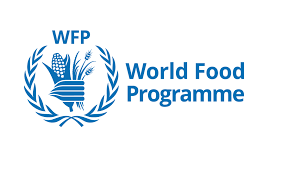World Food Programme (WFP): Fighting Hunger and Nourishing Lives

In this blog post, we will delve into the World Food Programme (WFP), its definition, establishment, location, significance, historical examples, and opportunities to join as staff or volunteer. The WFP plays a vital role in combating hunger and malnutrition globally, providing life-saving assistance to millions of people in need.

Definition and Foundation
The World Food Programme (WFP) is the leading humanitarian organization dedicated to eradicating hunger and promoting food security worldwide. Established in 1961, the WFP works towards ensuring that every person has access to nutritious food. It operates on the principles of neutrality, impartiality, and independence, providing assistance in emergencies and supporting sustainable development.

The WFP has its headquarters in Rome, Italy. The strategic location allows for close collaboration with other United Nations agencies, as well as partnerships with the Food and Agriculture Organization (FAO) and the International Fund for Agricultural Development (IFAD). The WFP operates in countries across the globe, with regional and country offices coordinating and implementing its programs.
Significance
Hunger Relief: The WFP plays a crucial role in providing immediate food assistance during emergencies, such as natural disasters, conflicts, and famines. It delivers life-saving food supplies to affected populations, ensuring their basic nutritional needs are met and helping them survive in times of crisis.

Nutrition and Health: The WFP recognizes the importance of not only providing food but also promoting nutrition and health. It focuses on addressing malnutrition and ensuring access to nutritious and diverse diets. The WFP's interventions include nutrition programs for vulnerable groups, such as children and pregnant women, to prevent and treat malnutrition.
School Feeding Programs: Education and nutrition go hand in hand. The WFP implements school feeding programs in various countries, ensuring that children have access to nutritious meals during their school day. These programs not only alleviate hunger but also incentivize school attendance and improve learning outcomes.

Examples from History
Ethiopian Famine (1984-1985): The WFP gained global recognition during the Ethiopian famine in the mid-1980s. It mobilized significant resources and provided emergency food aid to millions of starving people. The WFP's efforts, along with international support, helped save countless lives and raised awareness about the devastating impact of hunger.

Syrian Crisis: The ongoing conflict in Syria has resulted in a severe humanitarian crisis. The WFP has been at the forefront, delivering food assistance to millions of internally displaced people and refugees in neighboring countries. Despite immense challenges, the WFP continues to provide critical support, ensuring that vulnerable populations receive the necessary food and nutrition they need to survive.
Opportunities to Join
If you are interested in working with the WFP as staff or volunteer, consider the following options:
Employment: The WFP offers employment opportunities in various fields, including logistics, nutrition, program management, and communications. Visit the WFP's official website and navigate to the Careers section to explore job vacancies and application procedures.

Volunteer: The WFP also provides opportunities for individuals to volunteer their time and skills. These volunteering opportunities may vary based on location and operational needs. Check the WFP website or contact your local WFP office for information on volunteering opportunities and how to apply.
The World Food Programme (WFP) is a vital humanitarian organization that plays a significant role in combating hunger and malnutrition globally. Through its life-saving food assistance, nutrition programs, and school feeding initiatives, the WFP ensures that vulnerable populations have access to adequate nutrition and can thrive. By joining the WFP as staff or volunteers, individuals can contribute to the fight against hunger and make a meaningful impact on the lives of millions.

Sources
- World Food Programme (WFP) Official Website: Access comprehensive information about the organization's mission, programs, and initiatives on their official website. Visit: www.wfp.org.
- United Nations (UN) Official Website: Gain insights into the WFP's role within the United Nations system and its global impact. Explore the UN website for relevant information. Visit: www.un.org.
- WFP Publications and Reports: Find in-depth analysis and reports on the WFP's work, challenges, and achievements. Access the Publications and Reports sections on the WFP website for valuable resources.
- The State of Food Security and Nutrition in the World: Published jointly by the Food and Agriculture Organization (FAO), the International Fund for Agricultural Development (IFAD), the United Nations Children's Fund (UNICEF), the World Food Programme (WFP), and the World Health Organization (WHO), this report provides insights into global hunger and nutrition issues. Access the report at: www.fao.org/state-of-food-security-nutrition/en/.









